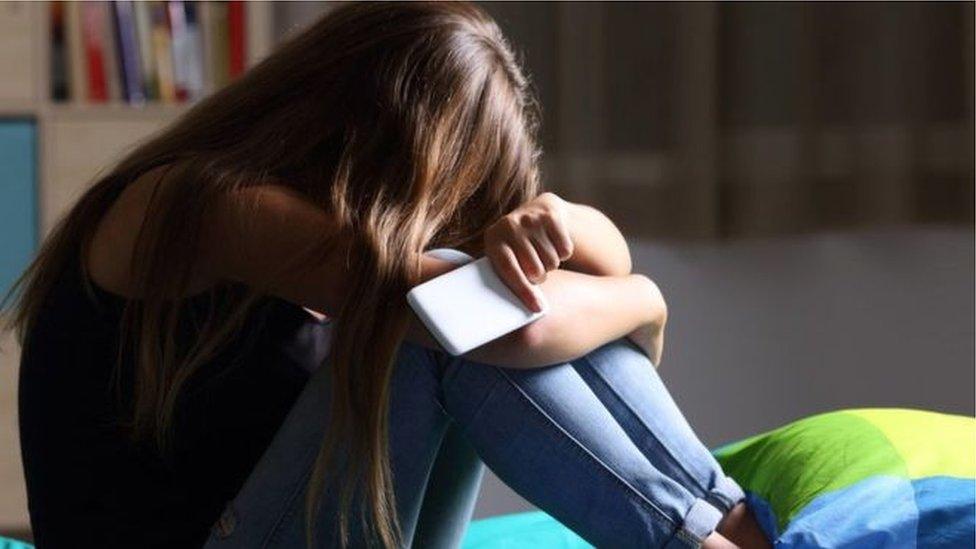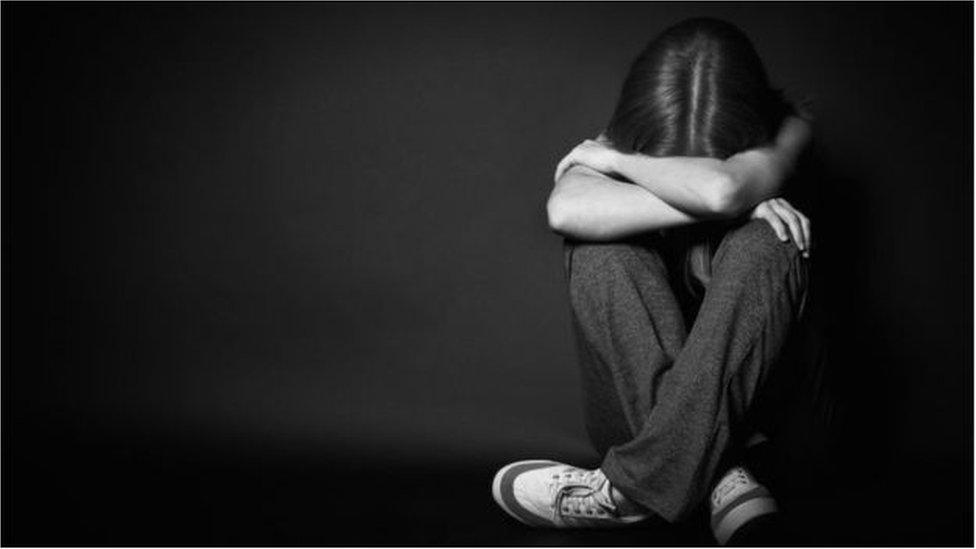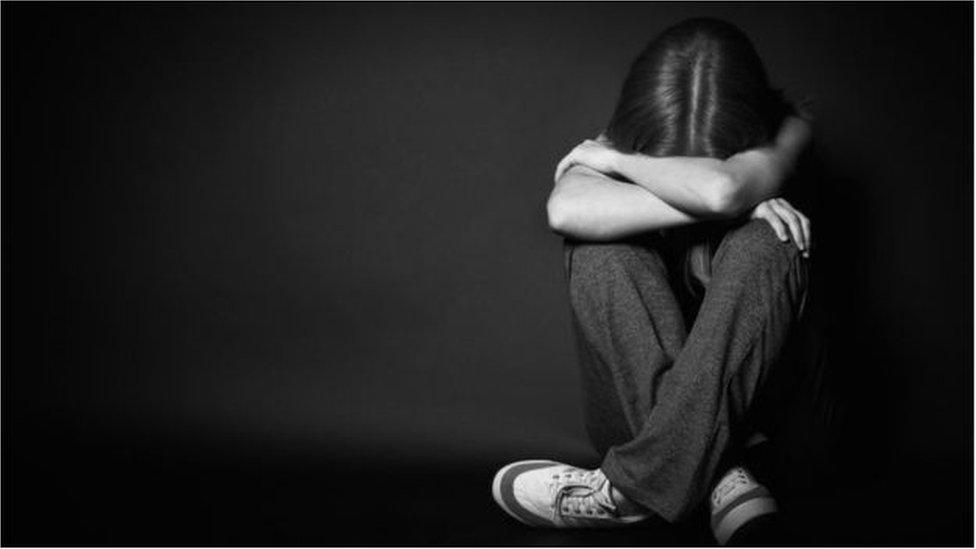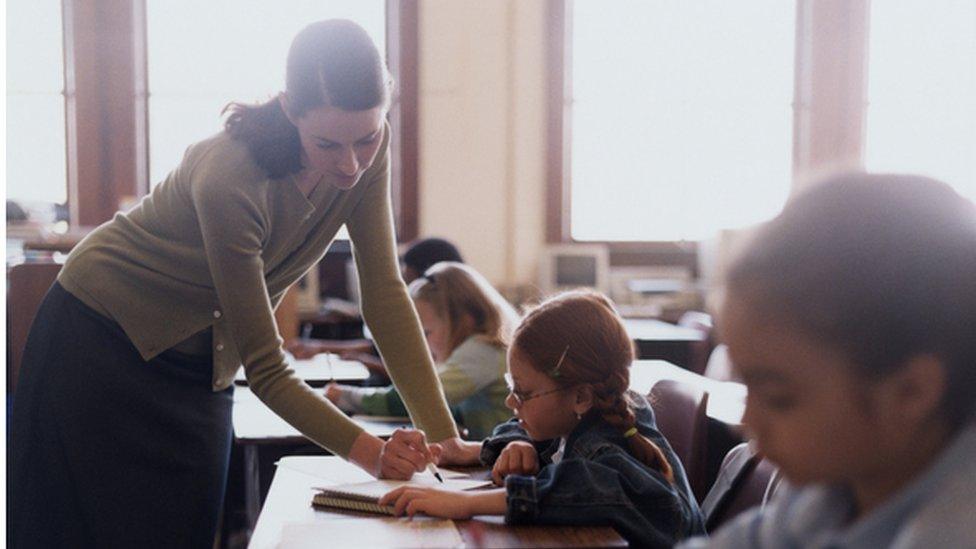Schools paying for mental health support
- Published

Seventy nine schools took part in the research and collectively identified 4,000 pupils with issues
Many schools have to pay for urgent mental health support for pupils from their own budgets, according to new research.
There is also growing concern among schools that many pupils are measuring their self-worth through the number of likes they get on social media.
These are some of the findings of a study into mental health support for school pupils.
It was carried out by the Education and Training Inspectorate (ETI).
Seventy-nine schools took part in the in-depth research and collectively identified a total of more than 4,000 pupils with emotional health and well-being issues.
While many had put special classes and programmes in place to help pupils with their mental health, the study also said all of the schools involved reported "significant challenges" in supporting increasing numbers of pupils "in crisis".
"The schools and centres are able to access free support services through the Education Authority and Health Service," the ETI said.
"However, they all report frustration with lengthy referral processes and delays in accessing this support."
For instance, one primary school said a child with mental health problems had to wait 18 months for appropriate help.
As a result, the report said, many schools "are having to pay from their own budgets for any interventions which are urgently required".
Some schools also highlighted a delay in getting counselling for pupils when one of their classmates died.
"A small number of schools highlighted the lack of access to appropriate support during sudden and unexpected pupil bereavement," the report states.

The impact of social media on emotional health was highlighted by a number of schools
"In one school immediate counselling support was not received until eight weeks after the bereavement."
The negative impact of social media on emotional health and well-being was highlighted by a number of schools.
"The reported misuse of social media and the inappropriate sharing of information online is causing conflict between pupils resulting in anxiety, stress and social isolation," the ETI said.
"There is growing concern that pupils are measuring their self-worth through the number of 'likes' they attract through social media and how this compares to their peers.
"Negative body image and low self-esteem is an associated concern."
A majority of schools were also concerned that parents knew little about the suitability of what their children were accessing online.
Children as young as four were identified by schools as having mental health issues - while some primary school children were also reported to be self-harming - but the proportion of pupils who needed support increased with age.

A majority of schools were also concerned that parents knew little about what their children were accessing online
Slightly more boys than girls were also identified as needing help by the schools in the study.
Some of the other problems identified by the ETI included:
A lack of knowledge and understanding among many parents about emotional help and well-being
Counselling sessions with pupils which are too short to be effective
Teachers insufficiently trained to help pupils with mental health problems
Teachers having to select pupils most in need of support, meaning other vulnerable pupils have to wait for help.
As a result, the ETI has put forward a number of recommendations to improve the situation.
These include primary schools talking more with parents about emotional health and well-being, and quick access to specialist support for very vulnerable pupils.
They also said that there needed to be a more joined-up approach between external agencies and schools in meeting pupils' needs.
The research was carried out by the ETI between October 2017 and April 2018 and involved detailed questionnaires and visits to 35 separate schools judged to have very good pastoral care provision.
- Published29 October 2018

- Published27 September 2018

- Published30 November 2017
